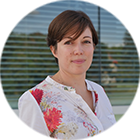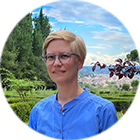Synthetic pesticides used to control pests such as insects, weeds, and fungi that damage crops and reduce yields have seen a dramatic increase in application since the Second World War. Their use is currently a contentious topic as can be gauged from recent political and public controversies about a potential ban of glyphosate within the European Union. Put simply, many observers are concerned about the negative effects of pesticides on health, biodiversity, and food safety, while others argue in favour of using pesticides to achieve food security by controlling pests and epidemic diseases. A recurring issue in the debates is the lack of scientific and political consensus on the potential risks and hazards posed by pesticide use, with some international bodies lobbying for stricter rules, and many private companies advocating their safety and necessity.
To understand the origins of these debates, the project Chemical Crossroads studies the historical role of United Nations specialized agencies in mobilizing scientific expertise related to the risks and benefits of synthetic pesticides during the 1940s, 1950s, and 1960s. The project will draw on preliminary research conducted by the principal investigator in collaboration with the project partner, and it will closely dialogue with currently florishing but separate historical research on pesticides, international organizations, and knowledge production. It will be the first project to carry out an in-depth empirical analysis of relevant archives of international organizations. The project design comprises three sub-projects, each based on one of three UN specialized agency – the International Labour Organization, the World Health Organization, and the Food and Agriculture Organization. With the help of a postdoc and two part-time research assistants, Chemical Crossroads will trace the scientific debates that took place in these organizations and contextualize them against the backdrop of geopolitical, economic, scientific, and developmentalist interests of the period. It will also assess the relationship of these institutions with non-governmental and private actors, such as agricultural trade unions, farmers organizations, and commercial lobbies. Each of the sub-projects will focus on one of the specialized agencies and the specific thematic frame through which the latter approached the topic. Since all three organizations overlapped thematically and administratively, all team members will benefit from each others’ insights and archival findings.
The overall objective of the project is to gain a comprehensive understanding of the knowledge and expertise on pesticides that existed within the three organizations and to examine their interactions as well as collaborations and tensions between different groups of experts and between experts and other international, non-governmental interest groups.
The project revisits the longstanding narrative that identified the 1960s as a turning point in the rise of environmental awareness about the dangers associated with the use of agricultural chemicals. Instead it argues that UN organizations showed concerns about the labour, food, and health risks related to the use of pesticides long before the environmental turn of the 1960s, but that these concerns did not necessarily lead to practical steps in reigning in the uses of chemical products. The project will contribute to the ongoing historical scholarship on how institutions shape the domains of agriculture, the environment, and development. It will also reveal to a broader public the deeply rooted features of current debates on the social and economic impacts of agricultural chemicals and unpack long-term trends in the conceptualization of the risks and benefits assigned to their use.
Timeline: February 2025 - February 2028.
Funding organisation:

Image by Jens and Jörg Peter on Pixabay










